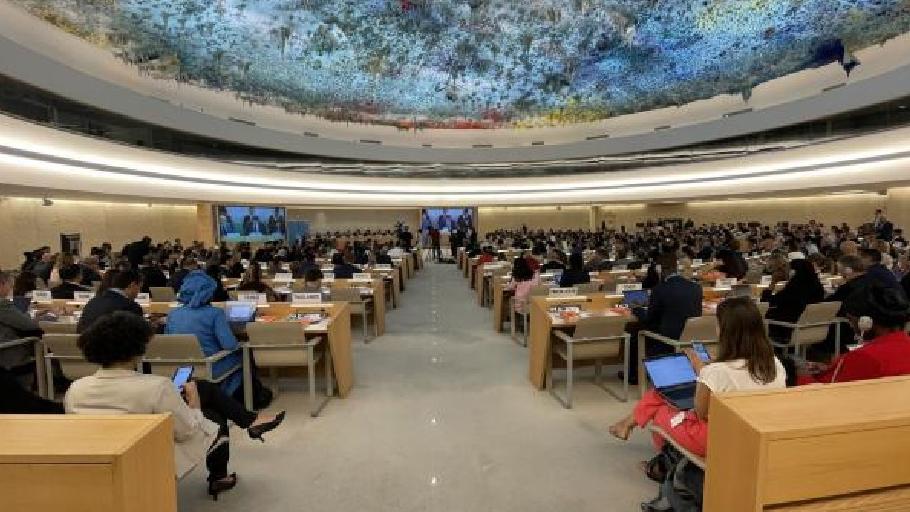The UN’s human rights chief on Tuesday accused the Taliban of a “shocking level of oppression” of women and girls and said human rights in the country were in a state of collapse.
“Human rights in Afghanistan are in a state of collapse, acutely affecting the lives of millions of women, men, girls and boys,” UN High Commissioner for Human Rights Volker Turk told the Human Rights Council in Geneva on the second day of their general session.
“The shocking level of oppression of Afghan women and girls is immeasurably cruel,” he added.
Turk’s speech came in the wake of a UN report covering the period March 2022-Aug 2023 which notes a “systematic regression of the rule of law and human rights in Afghanistan, particularly with regard to the rights of women and girls”.
The UN documented numerous alleged violations including 324 cases of violence against women and girls including murders – or so-called “honor killings” – as well as beatings and child marriages.
Türk told the council that Afghanistan had set a devastating precedent as the only country in the world where women and girls were denied access to secondary and higher education. “Over the past two years, there had been a systematic erosion of the laws and institutions that once provided protection for human rights. Laws were now made by edicts rather than through consultative processes,” he said, adding that the laws that had protected women from violence and created an enabling environment for the media had been suspended.
He said the Afghanistan Independent Human Rights Commission was scrapped, corporal punishment and public executions had resumed and there were ongoing reports of extrajudicial killings, torture and arbitrary arrests. Compounding all of this was a deeply troubling lack of accountability for perpetrators of human rights violations, he said.
Türk stated that the international community could not turn its back on the people of Afghanistan. “This was a human rights crisis of the first order,” he said.
Instead, he encouraged nations to proactively help address the challenges facing Afghanistan’s economy. “This would involve concrete efforts to restore the financial systems to genuinely benefit the Afghan people, including women and girls, and to ensure that sanctions did not impact on humanitarian needs,” he said.
He also urged countries with influence over the Taliban to help them reverse the current trajectory and urged the de facto authorities to fundamentally bring Afghanistan back to the international order with full respect for its international human rights obligations.
In a discussion later Tuesday, some speakers said they were deeply concerned at the regression of the basic rights of women and girls in the country. Women and girls were still excluded from secondary and higher education and were restricted from participating in almost all forms of public life, including working for the United Nations or non-governmental organizations.
They pointed out the country was ruled by edicts, while judges, prosecutors and lawyers had been removed from the legal system.
Speakers called on the Taliban to end all human rights violations and violations of international humanitarian law in Afghanistan.
Britain’s Human Rights Ambassador Rita French meanwhile said in her address to the council on Tuesday that the international community must not remain silent.
Delivering the UK’s report on Afghanistan to the UNHCR session, French said the Taliban’s draconian measures against women in education, health, and employment, have invoked further violations of women’s and girls’ rights including women being beaten, harassed or ordered to return home if exercising their freedom of movement.
She said the UK continues to stand in solidarity with women and girls in Afghanistan who are “courageously fighting for their rights in the face of the Taliban’s shocking tactics to erase them from all spheres of public life.”
French stated that the international community must not remain silent, nor should the UN Human Rights Council be silent.
She also stated that the UK condemns the numerous documented human rights violations against former government officials and members of the security forces since August 2021. “We call again on the Taliban to honor the amnesty it previously announced and to investigate the allegations of targeted killings and disappearances.”





